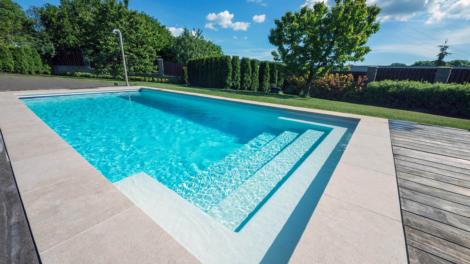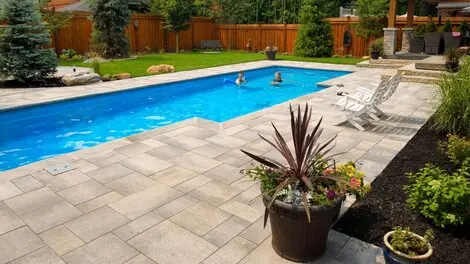Aussies love their pools, and the number of households in the country with pools is only increasing steadily.
However, fibreglass is an option often overlooked because many still believe it would be challenging to collect heat. If that were the case, why would fibreglass pools dominate the majority of the pool market in Australia?
Today’s guide will help clear your doubts by explaining how modern fibreglass pools are easy to heat and make for a valuable investment.
Can You Heat A Fibreglass Pool?
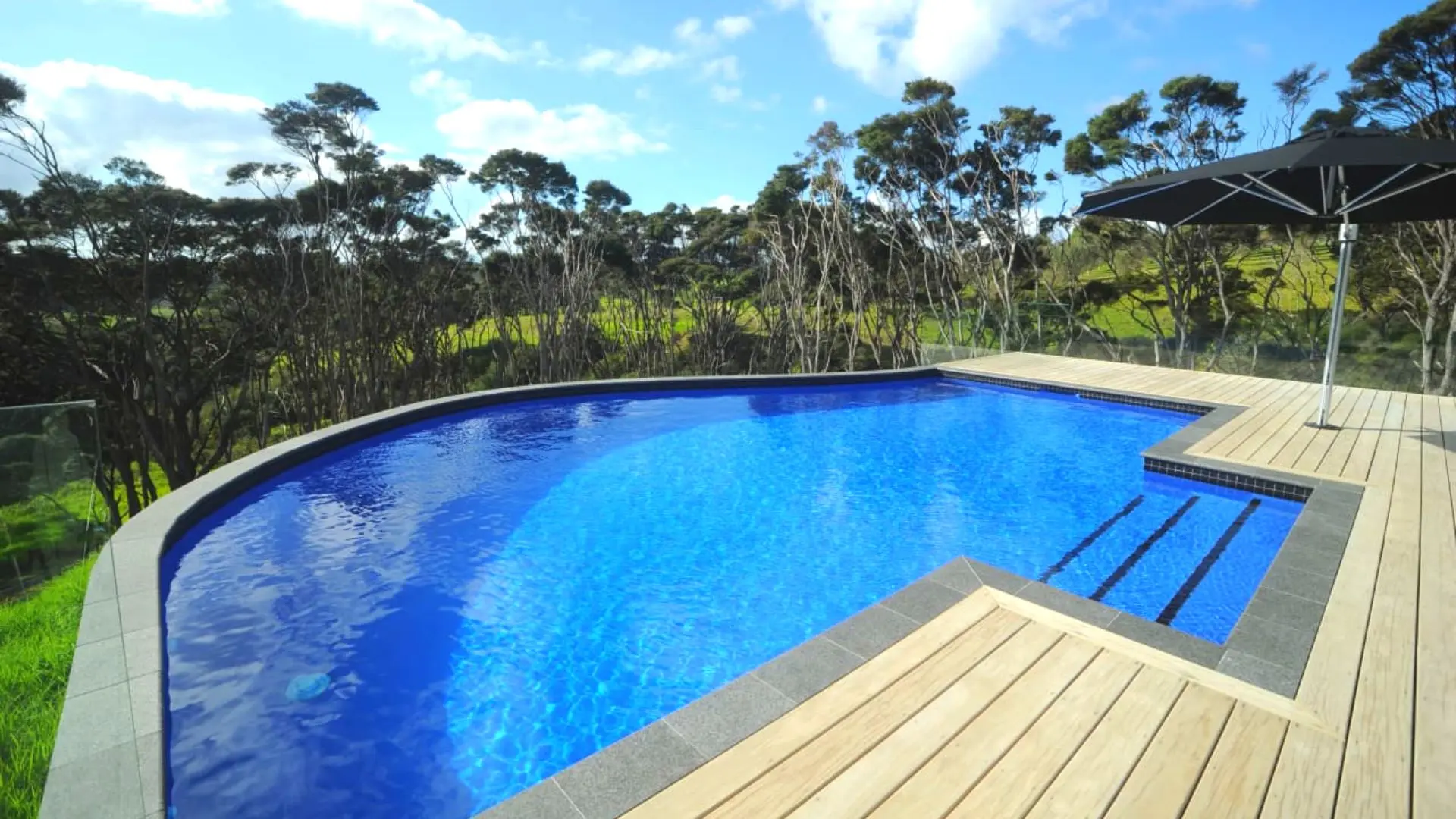
Although Australia is known for its warmer climate and simmering summer heat, it gets slightly chilly in winter, the impact of which is felt in your pool. The easiest thing would be to install an efficient heating system, but what if you have a fibreglass pool?
There’s no reason to worry because it’s possible to heat a fibreglass pool to the optimum temperature, thanks to several heating systems available on the market. Even if you don’t reside in a colder part of the continent, a heating system is essential, and we will explain why.
Why Should You Have A Heating System?
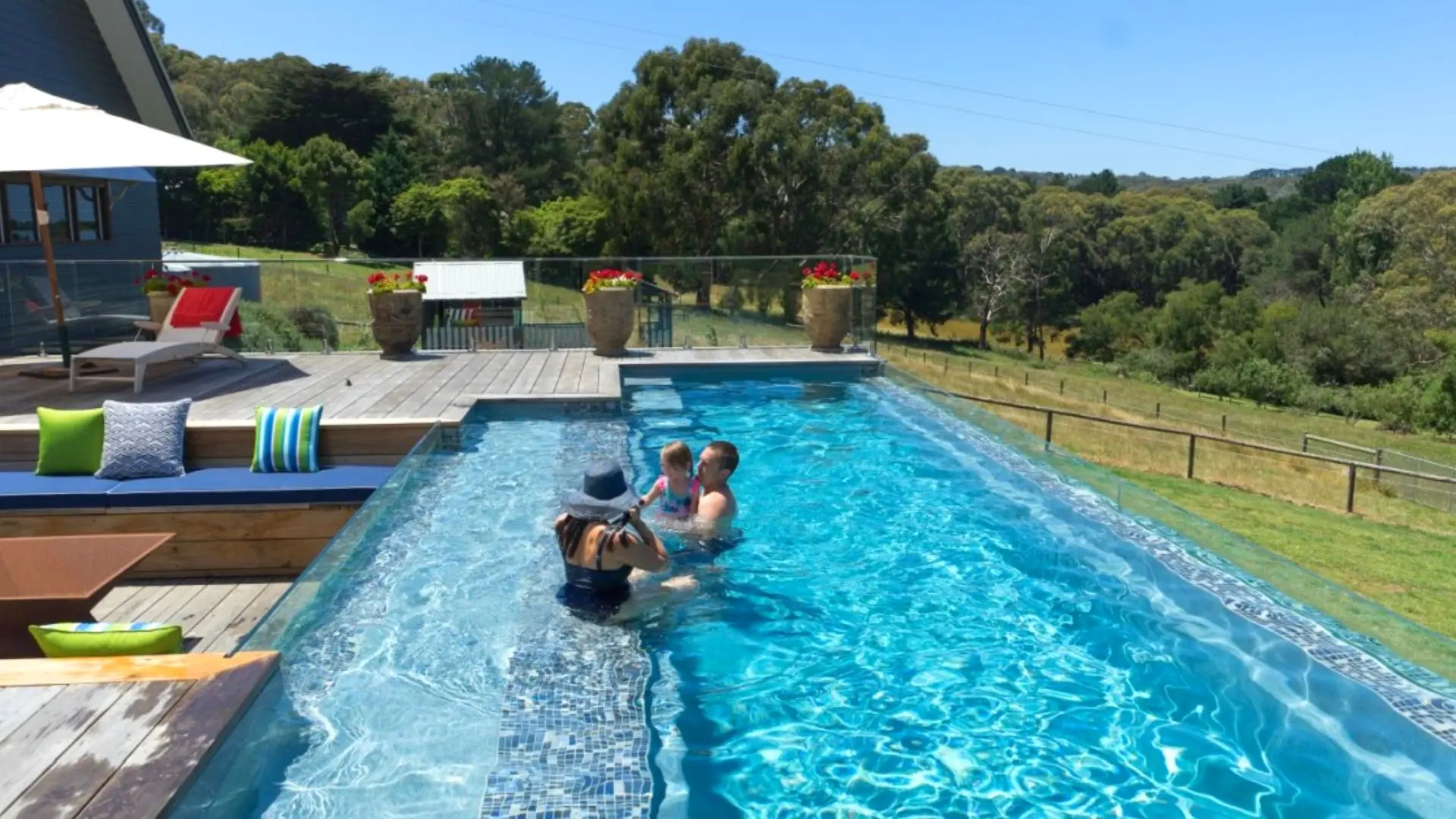
Thanks to their enhanced heat retention capabilities, you can install a heating system for fibreglass pools to keep them warm far longer. But why is this important, especially considering that temperatures in Australia are already higher?
While Australia doesn’t have the chilling winter climate of the USA, you need to maintain the pool water at an optimum temperature for a relaxing experience. Think about it—don’t people relax in spas that are comfortable at 36 degrees Celsius?
Another reason outdoor temperatures aren’t sufficient for heating a pool is that the sun only heats the water’s surface. When you jump in for a pleasant swim, the bottom of the pool is much colder than you had expected.
The difference between Australia’s hot summer and winter months can be as much as 10 degrees Celsius. And the temperature drops even further in some states, so installing a pool heater will help you relax throughout the year.
Types Of Heating Systems
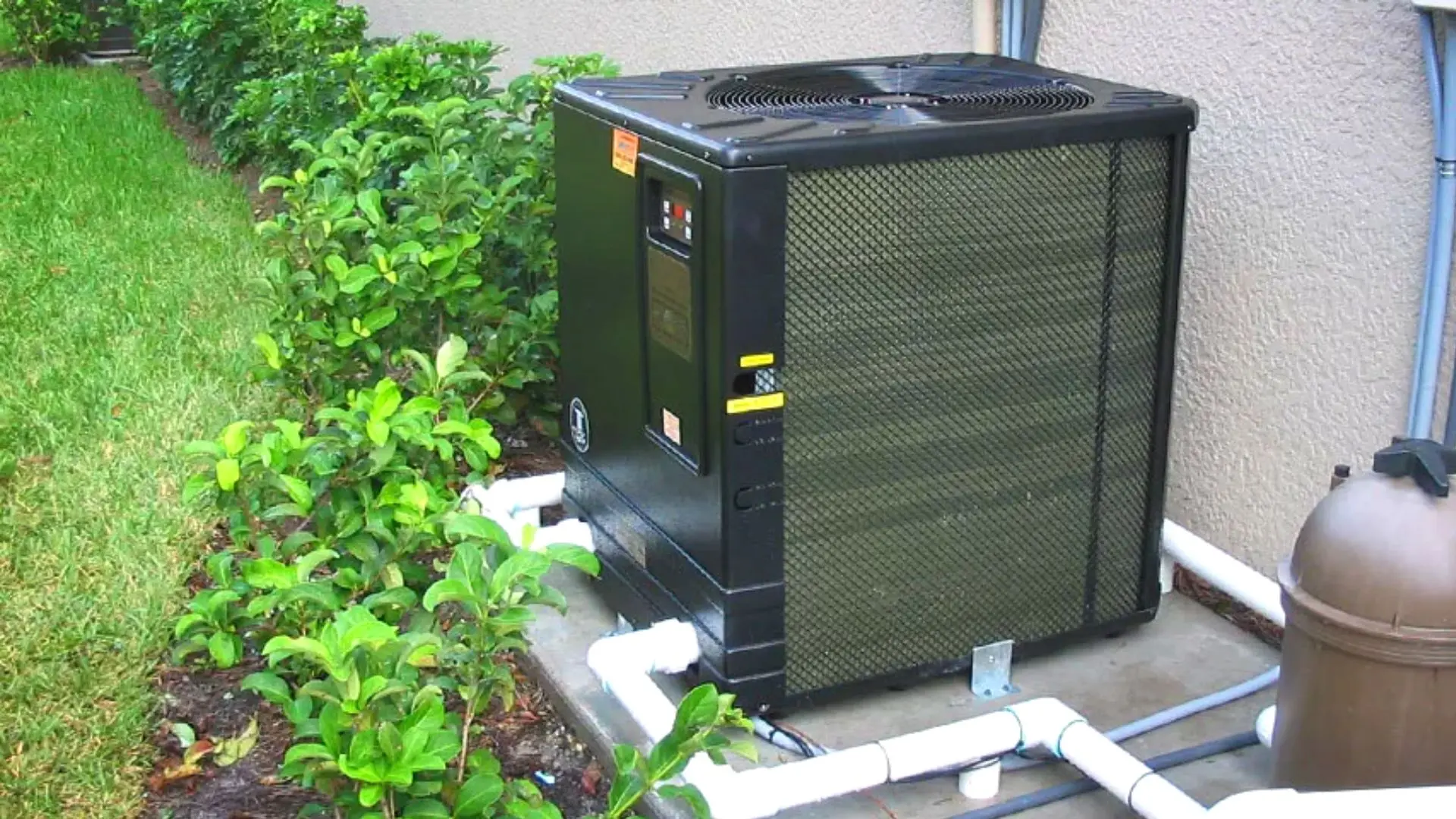
1. Gas Heating
This is possibly the most expensive heating system you can install, but don’t worry—it’s well worth your money. Gas heaters aren’t dependent on the sun to heat the pool, and you can increase the warmth of the pool water to the desired temperature in any climate.
That’s why you will find most spas have a gas heating system since it’s easier to maintain a consistent temperature. Best of all, heating the pool doesn’t take much time, and you can get it ready quickly for an impromptu swimming session.
However, gas heaters are more expensive and not very environmentally friendly, so many people use them as their backup heating system after solar or electric heaters.
2. Solar Heating
Recently, the popularity of this type of heat system for fibreglass pools has skyrocketed, as they are highly cost-effective. These heaters with solar power use heat from the sun to increase the pool water temperature, which makes them more environment-friendly than other options.
Contact a licensed pool builder, and they will install an energy-efficient and affordable solar heater. These systems direct cold water into the solar absorber capillary tubes along the hot roof and return the heated water to the pool. Remember that solar heating will help maintain a consistent temperature only when there’s enough sunlight on a hot day.
This is the primary problem with solar systems. While they can increase the pool temperature by 2 degrees Celsius, they don’t work well on rainy or cloudy days.
3. Electric Heating
Another popular option is an electric heating system, which uses a heat exchanger to trap the heat in the air and direct it to the pool.
Electric systems sometimes outperform solar heating since they don’t solely depend on the sun for heat. They can trap heat from the surrounding air even on a cloudy day, which makes them one of the most reliable heating systems.
Electric heaters require large amounts of heat to function correctly and are more expensive than solar heaters. And despite their longevity, electric heaters don’t heat the water as much as other options.
The Best Way To Heat A Fiberglass Pool
There are few things in life better than de-stressing in a well-heated pool, so consider installing a heating system for your pools.
The significant advantage of fibreglass pools is that they heat up quickly and remain hot far longer, reducing energy expenditure and lowering heating time. To choose the best heating system, consider the climate you live in, how much sunlight you get, and the purpose of the fibreglass pool.
If you have questions, The Pool Co team in Sydney is always here to help. Let’s talk about the best way to heat your fibreglass pool.
